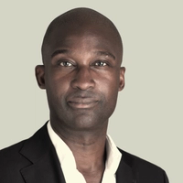THE NEWS  Reuters/Temilade Adelaja Reuters/Temilade AdelajaNigeria’s new president Bola Tinubu implemented market-friendly reforms in his first two weeks in office in a bid to overhaul Africa’s biggest economy and attract investment — despite the risk that angry citizens could derail his plans. The central bank on Wednesday allowed the naira to trade freely against the dollar, prompting its official value to plummet by nearly 40% as it moves towards a single exchange rate. It marked the end of multiple, tightly controlled exchange rates championed by its governor of the last nine years, Godwin Emefiele. Tinubu suspended Emefiele last Friday and the following day security agents confirmed he had been arrested and held in custody for “investigative reasons.” Tinubu made his intentions clear in his inaugural address on May 29: “The central bank must work towards a unified exchange rate. This will direct funds away from arbitrage into meaningful investment in the plant, equipment and jobs that power the real economy.” He also announced the scrapping of a fuel subsidy that cost the country $10 billion in 2022. KNOW MORE In the last week, Tinubu has also signed laws to overhaul the power sector and provide student loans. The power legislation, signed into law on Friday, allows Nigeria’s 36 state governments to regulate their electricity markets. They were previously controlled by the federal government. Another bill signed on Monday creates a fund to provide interest-free loans to university students. ALEXIS’S VIEW Tinubu has begun his presidency with big, bold policy moves that clearly mark an ideological break from the past and could boost foreign investment into Africa’s biggest economy. The central thread that connects Tinubu’s policy changes is a seemingly unwavering faith in supply and demand to dictate the value of the currency and the price of petrol. “The power reforms could be revolutionary for electricity supply in Nigeria,” Fola Fagbule, a director at multilateral lender Africa Finance Corporation told me. He said devolving certain responsibilities for electricity to state governors frees them up to innovate to attract investment. Poor power supply has long held back the development of Nigeria’s economy. Exchange rate reforms are significant because they appeal to investors who stayed away due to the statist policies of his predecessor, Muhammadu Buhari. The byzantine web of exchange rates and tight currency controls created confusion and made it hard for foreign businesses to repatriate their profits. We got a sense of investor sentiment on Monday when Nigeria’s international bonds surged in the wake of Emefiele’s suspension. But there are potential pitfalls. The huge price rises for petrol could stoke inflation. The last attempt to remove the subsidy, 11 years ago, was reversed after widespread protests. That hasn’t been repeated — probably because its removal was well-signaled — although major labor unions nearly called a nationwide strike. If unleashing market forces causes a steep rise in the cost of living, as many economists predict, Tinubu will be forced to consider what he values more: the backing of international investors or his citizens. ROOM FOR DISAGREEMENT Ikemesit Effiong, head of research at Lagos-based political risk consultancy SBM Intelligence, argued that Tinubu’s approach has been driven by the economic malaise Tinubu inherited from Buhari rather than a particular economic vision. “In terms of policy, there isn’t a lot of economic wiggle room,” said Effiong, referring to issues such as the removal of the petrol subsidy and allowing the naira to float freely. “It really was a matter of if, and not when. He really had no choice.” VIEW FROM LAGOS In the Surulere neighborhood of Lagos, 40-year-old Edith Pius, who sells rice and stew, from a wooden shack complained that customer numbers had dropped since the petrol price increase, even as costs of her ingredients have soared. She hasn’t raised prices for fear of losing customers to nearby competition but increased the minimum order on some items. “I no longer sell 100 naira rice (21 cents), it’s now from 200, except for school children,” she said. — Reporting by Alexander Onukwue in Lagos NOTABLE - Al Jazeera profiled Godwin Emefiele, Nigeria’s central bank governor whose suspension by Tinubu presaged the new currency regime. Emefiele, architect of an ill-fated cash redesign weeks before this year’s general elections, had been “all powerful.”
| 







